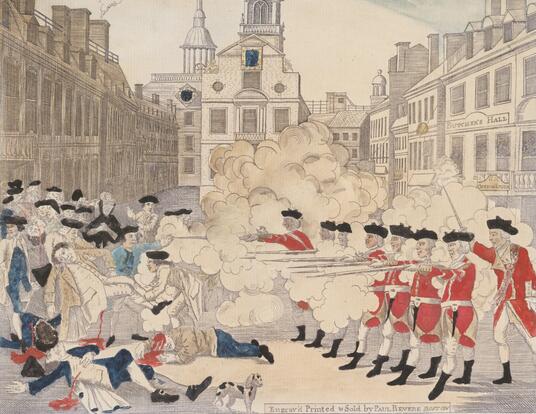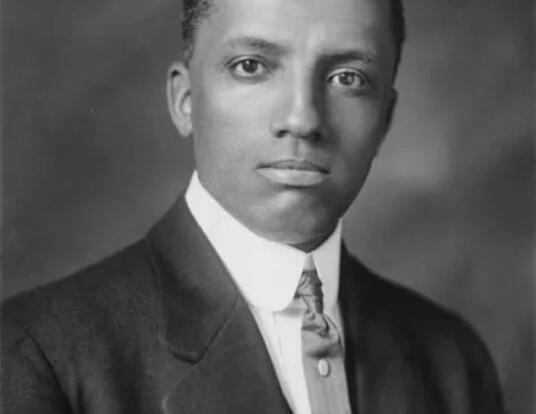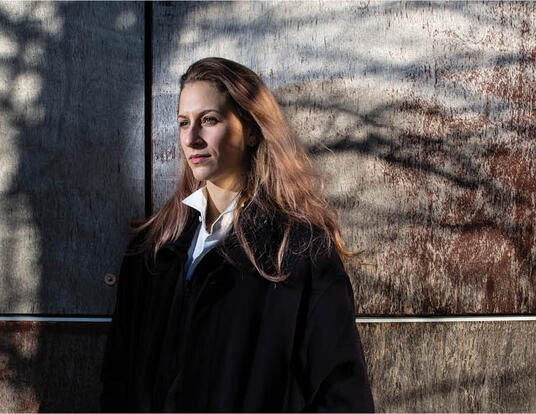Learning from ‘Les Mis’
Barnett expounds on classic novel’s lessons of love and forgiveness in a time of crisis
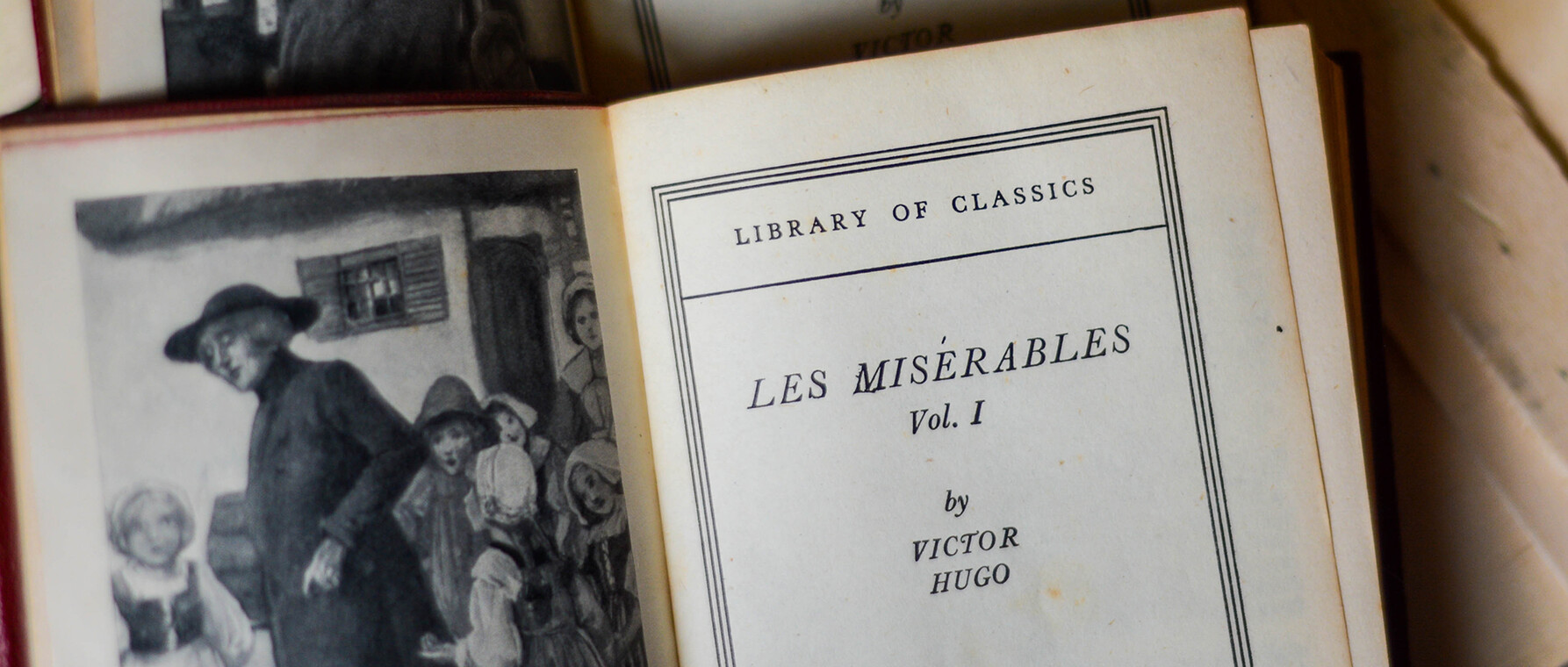
Imagine you’ve been arrested for a trifling offense and condemned to a life of backbreaking labor, constant abuse, and senseless violence. After almost 20 years, you’re released but shunned by the community as an ex-convict. A priest changes your life with his kindness and you go on to become a pillar of your community, but you’ve broken your parole and are discovered by a ruthless policeman who throws you back in prison. You escape and live a simple life with your daughter. The policeman pursues you, always at your heels threatening to destroy you and your family.
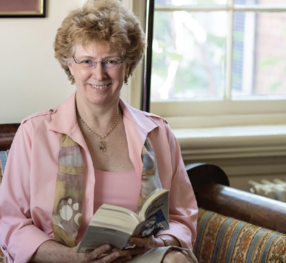
Now, finally, you have him at your mercy, pistol in your hand, with every reason to execute him. What do you do?
If you’re Jean Valjean, the protagonist of the epic novel Les Misérables, you do the only thing you can: you show mercy to your enemy, Inspector Javert, and let him go, even though you know that he will try to capture you again.
Marva Barnett, PhD ’80, professor emerita at the University of Virginia (UVA), has spent years studying Les Misérables and the work of its author, the French poet and novelist Victor Hugo. In her new book, To Love Is to Act: Les Misérables and Victor Hugo’s Vision for Leading Lives of Conscience, she draws on a lifetime of scholarship not to investigate the novel’s literary merit, but instead to explore its ethical teachings. A recipient of the Thomas Jefferson Award, UVA’s highest honor, and the founding director of the school’s Center for Teaching Excellence, Barnett spoke recently with Colloquy about Les Misérables and the lessons of humility, love, and forgiveness she thinks it holds for people living through times of crisis and division.
Why did you want to write this book now?
I was inspired primarily by my students’ reactions to Les Misérables. Most are inspired to take my course because they love the musical. Then they read the novel and say, “I feel like I want to make the world a better place.” And, you know, in a world that poses such challenges, one where so many have tough lives, the characters in Les Misérables have hope. They carry on. We come away from the story feeling like we can be better people and can change things. I would like to see more people experience the inspiration of Hugo’s novel.
The title of your book is To Love is to Act. What’s the significance of those words in the life and work of Victor Hugo?
They were the last words Hugo wrote—a rather amazing phrase that is only five syllables in either French or English. The meaning seems self-evident but the more you think about it the richer it becomes, like it's poetry.
The example I start the book with is the episode in 1846 where Hugo actually sees a real-life Jean Valjean—a bread thief in bloody, filthy rags arrested and led through the streets by soldiers. He sees a wealthy woman who's completely oblivious to what's happening right next to her. Hugo observes all this and cares about this poor, homeless, wretched man. He sees that we need to do something or there's going to be a cataclysm. (And, you know, there was in 1848.) His conscience is activated. I know that love and conscience don't necessarily go together in one’s mind. But I think for Hugo, altruistic, empathetic, compassionate love activates conscience. They work together.
Throughout his life, he engages in conscientious actions. At the time of the 1851 coup d’état, when Louis Napoleon Bonaparte was taking over the government and saying, “I'm going to continue being president, thank you very much. Just make me president forever,” there were many legislators who fought that. But Hugo went so far as to put up a poster calling for the army to rise up in support of the Republic and sign his name to it, which led to his exile. He says, “I will return to France when Liberty returns.” He pushed himself and he pushed the people around him to act for justice in loving, humane ways.
How do you think Hugo’s vision of conscience could be helpful in the face of a global pandemic? How might he respond if he were alive today?
Given his empathy for humanity, I think Hugo would be deeply moved by the large number of people seriously ill and dying during this pandemic. His story of the downward economic and social spiral of the warmhearted scholar M. Mabeuf—a Les Misérables character who deserves to be better known—shows how much Hugo despised society’s obliviousness to people’s suffering. Hugo maintains that, like Jean Valjean in Montreuil-sur-Mer, after he chooses to live in ways that bring him closer to God, individuals and governments should help people get back on their feet.
Hugo’s clearest public expression of conscience may have been his famous 1849 speech on poverty, which was made in support of a public assistance bill that then passed unanimously in the French National Assembly. He offered horrific examples of deaths and despair from poverty that are reminiscent of the great losses due to COVID-19. He reminded his colleagues that although they had recently established the Second Republic, they had done nothing “as long as people suffer” and as long as those who worked still didn’t have enough to eat. “Anarchy opens abysses,” he said, “but it’s poverty that first digs the hole. You’ve made laws against anarchy; now make laws against poverty!” If he were in Congress today, I think Hugo would untiringly argue for pandemic relief bills.
Although Hugo focused mostly on inspiring people to be loving and conscientious, he occasionally suggested solutions. In Les Misérables, he explored the causes of the 1832 insurrection, including the cholera epidemic that year. Explaining how social conflict grows, he contended that countries must “encourage the rich and protect the poor, eliminate destitution, put an end to the unjust exploitation of the weak by the strong, . . . set wages for a job fairly and in the spirit of fellowship,” educate everyone for free, and make sure that everyone owns property. To me, those recommendations sound like a roadmap for American progress, especially now that the pandemic has made crystal clear so many economic and social inequities.
Our country is divided bitterly along partisan lines. The election of 2020 seems only to have reinforced those divisions. What can those on all sides of the political spectrum learn from Les Misérables?
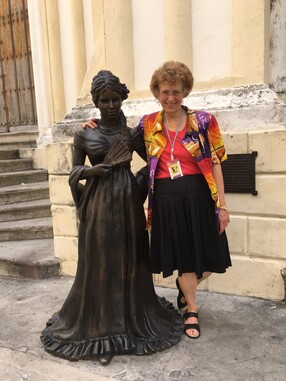
What we can learn from Jean Valjean is that he sees people. He sees the humanity in them. He sees it in the prostitute, Fantine. He even sees it in Inspector Javert, who pursues him so ruthlessly throughout Valjean’s life.
Valjean also brings peace to people. When there’s an uprising in Paris, he goes to the barricades and makes it safer. He doesn't shoot anybody except to shoot guns out of enemies’ hands. He gives up his army uniform so that someone else can disguise himself and escape with his life.
Valjean cares about people, but he’s not a saint. For instance, he hates Marius (the young man who wants to marry Valjean’s daughter). When he goes to the barricades, it’s not at all clear why. Is he going to try and make sure that Marius dies in the fight? Has he gone to kill Marius himself? I remember that my French students years ago didn't understand. They said, “We thought he was a good guy.” But Valjean is human; he has negative emotions. He overcomes his hatred because he loves his daughter Cosette and she loves Marius. He chooses to save Marius’s life.
It’s this capacity to love and forgive that we can learn the most from. The actor Hugh Jackman, who played Jean Valjean in the movie version of the musical Les Misérables, told me that he approached the scene where he frees Javert after the student radicals capture him at the barricades “by actually loving Javert, by seeing the humanity in him.” Maybe if people on both left and right could bring Valjean’s ability to see, to love, and to forgive to the conversation, we might not be so divided anymore.
And Javert? What can we learn from him?
Javert is a cautionary tale about the dangers of being narrow-minded. He lives his life with blinders on. “This is what the law says. I carry out the law.” There are no mitigating circumstances. There's no context. There's not even a broader view of gathering evidence. We see his prejudice in the scene where Fantine is assaulted. Her attacker frequents prostitutes, but he’s an “upstanding citizen.” He has money. Fantine is a prostitute, ergo she’s at fault here. Never mind that she’s ill. Never mind that she’s trying to feed her child. There’s a complete lack of empathy and critical thinking.
In the end, Javert’s rigidity brings him to the breaking point. Valjean forgives him and then turns himself in. He gives up his freedom and, in effect, his life to save Marius, who looks like he’s already dead. Javert is confronted by human feeling, empathy, and compassion that completely upends what he’s always thought. There is a bigger morality and a bigger way to live your life. There's a God. But rather than open himself up and grow, he commits suicide. He can’t go on. The world is black and white for Javert. And yes, there’s a lot of that in the horrible divide that we have in our country. If they're on that side, they're bad. If they're on my side, they're good. In Les Misérables you see where that kind of thinking gets Javert.
Although it was on the Catholic Church’s list of banned books for many years, Les Misérables is often seen as a specifically Christian allegory. What can readers of other faiths—as well as those who have no formal religious affiliation at all—get from Hugo’s work and vision?
There’s actually not a lot of Christian liturgy or ritual in the book. The character Myriel—who was based on a real person—is a Catholic bishop, but he enacts his faith through his gestures of love and forgiveness. Early in the book, he takes in the ex-convict Valjean when no one else will. He feeds him and gives him a place to sleep. When Valjean responds by stealing the silverware and is arrested, Myriel not only forgives him but also gives him his silver candlesticks. You can see that as a specifically Christian act, but most religions teach forgiveness. I prefer to call this choice—and others like it throughout the novel—a manifestation of the Universal Spirit that Hugo himself believed in. It’s deeply human and real.
Finally, Hugo himself was far from perfect. He was unfaithful to his wife and was actually on holiday with his mistress Juliette Drouet when his daughter Léopoldine died tragically in a boating accident. How do we hold both the moral vision and the imperfect vessel from which it flowed?
A friend of mine asked me the same question. “How can you admire this guy who had these affairs?” But I reject today's notion that we need to throw away what we've perceived to be good ideas or powerful art because of any problematic things that the artists did. We may choose personally not to engage with the art anymore, but art comes out of people and people have flaws. Some things are so bad that you wouldn't admire a person, but we have to put Hugo’s behavior in cultural context, which is different in France than it is in America, and different in the 19th century than it is now. It's also helpful to try to step back and look at the human needs and pressures on people and how that all comes together. The situation was complicated. Neither Hugo, nor his wife, nor his mistresses behaved perfectly.
So, yes. Bottom line, Hugo’s not perfect. Neither is Jean Valjean, but his conscientious actions form a giant pile when you stack them up next to his misdeeds. I think you can say the same for Hugo. Maybe we can view them both with the empathy and compassion we find in Les Misérables.
Photos courtesy of Marva Barnett / Olesea Vetrila for Shutterstock
Get the Latest Updates
Join Our Newsletter
Subscribe to Colloquy Podcast
Simplecast



